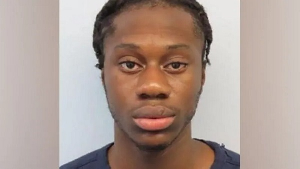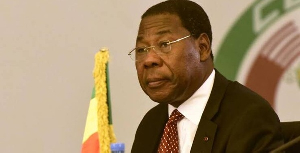Richard Ahiagbah, Executive Director of the Dankwa Institute, has called for advocacy towards granting the chieftaincy institution active participation in the democratic process.
He said the 1992 Constitution barred chiefs from active politics in a move that was intended to shield them from political interference, but rather defeated democracy’s people’s government adoration, and that it must be corrected to enable traditional authorities to support sound democratic delivery.
Mr Ahiagbah said this while delivering the keynote address at the launch of the Evangelical Presbyterian University College’s International Conference on Democracy and Governance in Ho.
He said the nonparticipation of traditional authority denied the nation’s democracy the activism required to make it serve the needs of the people, and called for the intervention of intellectual advocacy.
“Chieftaincy is a pressing issue with the 1992 Constitution, because of its outright prohibition of chiefs or chieftaincy institution from active multiparty democracy.
“How can we possibly claim a government of the people, by the people, and for the people when the operating document, the Constitution, excludes some of the people from active political speech and free association?"
“Traditional Chieftaincy institutions predate modern western democracy. There is every indication that chieftaincy has served Ghana well, that is why it has lingered through the trials of the colonial era, the attacks on it by the First Republic enthusiasts as well as today’s emasculation by the 1992 Constitution,” Mr Ahiagbah stated.
He added that the nation’s “struggles” with indiscipline and order were in “fundamental ways due to the obscurity of the stable voice of custom”.
The Director said the article 276 (1) was “meaningless in a democratic sense”, and asked that the nation use advocacy to repeal the article, because it “confront and assuage the fears of the skeptics and concerned gatekeepers”.
“We cannot allow the unfortunate happening of our past to confine and consign us to eternal fear of ourselves; such that we vow to forever delink traditional authority from modern democratic rule. To continue this way is to dwell in eternal dysfunction for, we cannot achieve a common goal with parallel systems.
“The choice is ours, and we must choose either to uphold democracy, a government of the people, by the people, and for the people, which includes the active participation of chiefs or continue to patronize the dysfunctional system that we are nursing with the 1992 constitution.”
The two-day conference is under the auspices of the School of Social Sciences, Governance Studies Department, and on the theme “Deepening Democracy in Ghana- the Politics of the 2020 General Elections”.
Professor Edem Kwesi Bakah, newly inducted president of the University who launched the conference, said it was among the first line-up of initiatives geared towards broadening its research scope and enhancing international viability.
Mr. Harrison Kofi Belley, Head of the Governance Studies Department, said the University sought to reach out to its catchment area.
He said the 2020 elections prompted “crucial issues” which had been explored by intellectuals from both within and outside the country.
Mr Belley added that the conference attracted over 70 abstracts, and asked students of the University to take the opportunity to better their research works.
General News of Friday, 9 April 2021
Source: GNA













